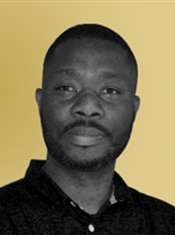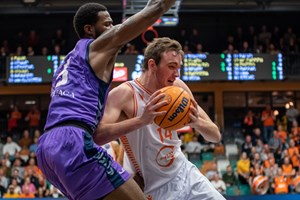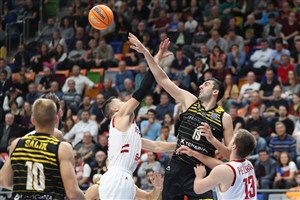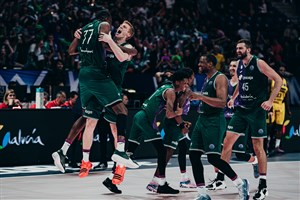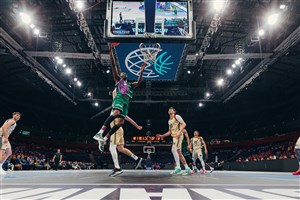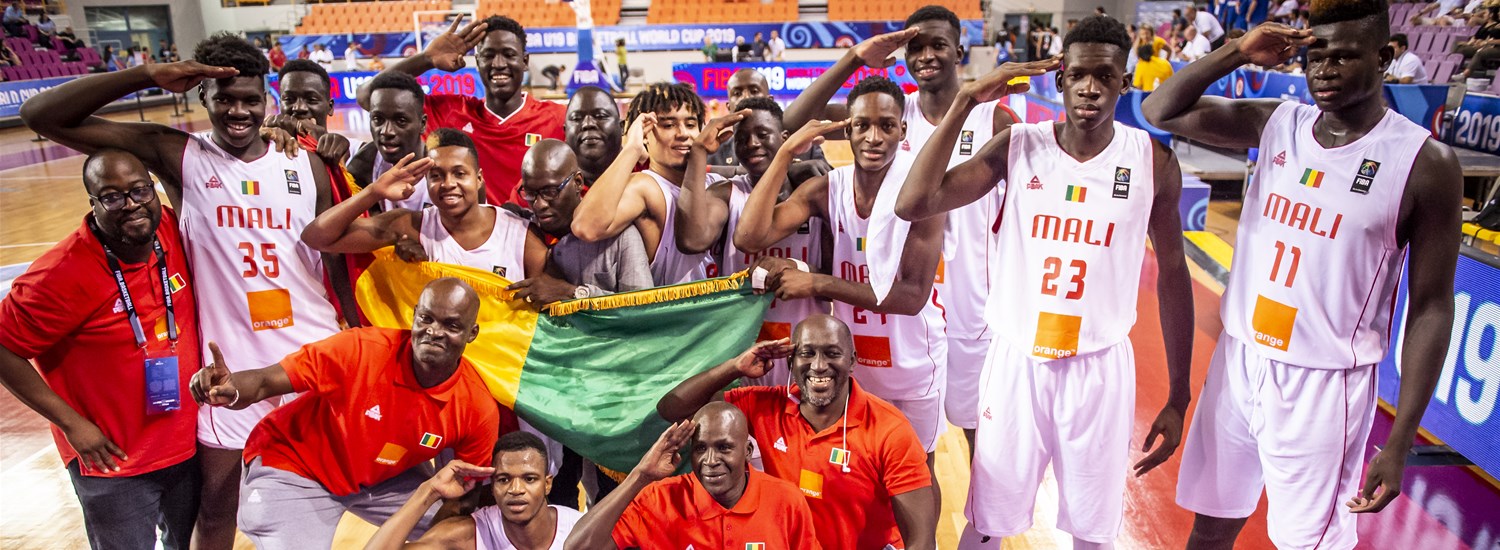
A to Z of African basketball in 2019
LEEDS (Julio Chitunda's African Message) – It's been a hectic year for basketball in Africa, and today's column highlights - from A to Z - moments and facts that marked the last twelve months.
A is for Abidjan, and new arenas. FIBA Africa unveiled its newly-built headquarters in Abidjan, Cote d'Ivoire.
Known for scarce and some inadequate basketball venues, Africa is living a new era with the construction of Dakar and Kigali arenas.
B is for Basketball Africa League (BAL). The new competition, an partnership between FIBA and the National Basketball Association, has seen over thirty clubs from all corners of Africa take part in the qualifiers.
The BAL regular season will start in March 2020 with seven host cities. The BAL Final-Four will take in Kigali, Rwanda.

C is for Cote d'Ivoire, Cameroon and Cape Verde.
Against all the odds, Cote d'Ivoire returned to the FIBA Basketball World Cup for the first time since 2010 while Cameroon saw their dream of making their debut in the tournament come to an abrupt end. The 'Elephants' needed three wins in as many games in the last window of the World Cup African Qualifiers to qualify while Cameroon - who had concluded their qualifying campaign two months earlier - would advance had Cote d'Ivoire lost a game. After beating Nigeria, Cote d'Ivoire, saw off Central Mali and Rwanda to become the fifth African team to qualify for the 2019 FIBA Basketball World Cup.

Cape Verde hosted the 2019 FIBA Africa U16 Championship, the first of its kind in the history of the islanders basketball history.
D is for Primeiro D'Agosto and Democratic Republic of Congo.
By winning the 2019 FIBA Africa Basketball League the Angolans won their ninth continental trophy, establishing a new record in Africa.
The Congolese won the first edition of the FIBA AfroCan thanks to an 82-61 win over Kenya.
E is for Egypt. The North Africans may have failed to qualify for the FIBA Basketball World Cup in China, but it continued its impressive grassroots programmes. Egypt won the 2019 FIBA U16 Africa Championship. Egypt has become to become reckoned with in 3X3 basketball winning both FIBA 3x3 Africa Cup for Men and Women.
F is for Ferroviario de Maputo.
The Mozambique champions beat continental powerhouse InterClube in the Final of the 2019 FIBA Africa Women's Champions Cup to retain their continental title.
🏀🏆🇲🇿 BACK-TO-BACK AFRICAN CHAMPIONS!!!
— #FIBAACCW (@FIBAACCW) December 14, 2019
Parabéns #FerroviarioDeMaputo! 👏👏 #FIBAACCW #Mozambique pic.twitter.com/s6MyWKk2ck
G is for GNBC and Gandega - The Madagascar champions secured one of the last three spots for the highly-anticipated BAL's regular season.
Mali may have last won the FIBA Women's AfroBasket back in 2007, but a new star has emerged bearing the the country's flag. Her name? Touty Gandega.
🇲🇱 Mali's point guard Touty Gandega came up big in Mali's win over DR Congo: 19 pts, 3 stl, 75% FG, 25 EFF.#AfroBasketWomen @BasketMalien @Poupexe pic.twitter.com/NRf4ScsAwk
— FIBA (@FIBA) August 13, 2019
H is for Heraklion - The Greek city has become a historic place for Mali basketball. It was in Crete where Mali U19 team officially put their basketball on the international map after finishing second.
I is for Ingvild Mucauro. Named MVP of the 2019 FIBA Africa Women's Champions Cup, the 27-year-old guard was her team's soul and heart, averaging team-highs 16 points, 9 rebounds and 5 assists.
J is for James Justice Jr - The American-born United Arabs Emirate international powered Egypt's side Smouha to the Third-Place of the FIBA Africa Basketball League with a tournament-high 19.6 points per game. (players with with six games or more).
K is for Kanoute and Kalu. Siriman Kanoute, who won the MVP of the FIBA U16 African Championship 2017 and FIBA U18 African Championship 2018, was named to the 2019 FIBA U19 Basketball World Cup.
Nigeria point guard Ezinne Kalu ignited her country to their second straight FIBA Women's AfroBasket. She was named MVP of the tournament after contributing 13 points, 3.2 assists, 3 steals and 2.6 rebounds per game giving her an efficiency of 12 per game.
L is for Lagos - It was in Lagos where Nigeria sealed their ticket to China 2019.
M is for Mingas and Mali. At 40 years of age, Eduardo Mingas not only was named Most Valuable Player of the FIBA Africa Basketball League, but he also went on to become the first African player to play at five editions of the FIBA Basketball World Cup.
Meanwhile, Mali not only became the first African team to qualify for the Second Round of the FIBA U19 Basketball World Cup, but they went further reaching the Championship Game against eventual champions USA.
N is for Nigeria. The 2015 African champions qualified for the Olympic Games for the third time in a row. Hats off to the Nigerians.

O is Omar and Okogie. Mali's Omar Ballo, who was named to the All-Star Five of the FIBA U17 Basketball World Cup 2018, averaged 17.6 points while leading the competition with 11.8 rebounds and 3.8 blocks to go with 1.6 assists, 1.2 steals per game as the West Africans reached the final of the 2019 FIBA U19 Basketball World Cup.
Josh Okogie brought a breath of fresh air to the D'Tigers. If he remains injury-free and commits to represent his country, he is definitely one of the players to watch out in Tokyo 2020.
P is for Party. Some call it a dunk fest, but I call it a Nigeria Dunk Party in China.
Q is for Qualifiers. Based on the number of national teams involved, entertainment, social media engagement, the FIBA Basketball World Cup African Qualifiers gave teams and fans a new way of reconnecting. A team like Nigeria, for instance, hadn't played at home in decades.
R is for Record - Newly-built Dakar Arena has registered the highest attendance in a single basketball in Africa. 15,000 fans flocked into the venue to watch Nigeria beat hosts Senegal in the final of the 2019 FIBA Women's AfroBasket.

S is for Shamba, and Soraia. DR Congo's Maxi Munanga Shamba was named MVP of the inaugural FIBA AfroCan.
Nowadays, it's almost impossible discuss Egypt women's basketball without mentioning Soraia Deghady, who has become one of Africa's brightest talents.
T is for Tunisia. The reigning African champions beat Iran for their first-ever FIBA Basketball World Cup victory, but allowing a three-pointer with five seconds left against Puerto Rico in a 67-64 defeat relegated them to the third place of Group C. And a result they missed a chance to advance to the Second Round and finish as Africa's best-placed in China, which would have ensured automatic qualification for the 2020 Tokyo Olympics.
U is for U19. Mali's achievement in the 2019 FIBA U19 Basketball World Cup has entered the history books as Africa's biggest achievement in the competition history.
V is for Vincent - At 23, Nnamdi Vincent - along with Okogie, Jordan Nwora and Chimezu Metu - is an example of how Nigeria Men's national team in safe hands. Vincent averages 11 points in five 2019 FIBA Basketball World Cup games in China.
W is for WOQT. In 2019, reigning African champions Nigeria and Mozambique secured the only two spots on offer for African teams for the upcoming FIBA Women's Olympic Qualifying Tournament (WOQT).
X is for 10 in Roman numerals. In 2019 Africa saw more than 10 major basketball events taking place across several African cities, namely: Africa Basketball League Final Four (Luanda), Women's Champions Cup (Cairo), Women's AfroBasket (Dakar), AfroCan (Bamako), U16 Championship (Praia), U16 Championship for Girls (Kigali), Basketball Without Borders Africa (Dakar), Women's Pre-Qualifying Tournament (Maputo), BAL Qualifiers, Women's AfroBasket Qualifiers and FIBA 3X3 Africa (Kampala). Basketball's growth in Africa is real.
Y is for YEMALI. For years, Geraldine Robert carried Gabon's flag all over Europe. As she announces her retirement from the game, Robert, who last represented her country at 2015 FIBA Women's AfroBasket, pledges to dedicate most of her time to her YEMALI Foundation.
Z is for Zamalek - By winning the last edition of Egypt's Super League, Zamalek earned automatic qualification to the upcoming BAL's regular season.
Julio Chitunda
FIBA
FIBA's columnists write on a wide range of topics relating to basketball that are of interest to them. The opinions they express are their own and in no way reflect those of FIBA.
FIBA takes no responsibility and gives no guarantees, warranties or representations, implied or otherwise, for the content or accuracy of the content and opinion expressed in the above article.
